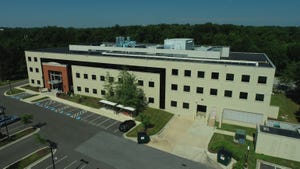Zinc Deficiency Damages DNA
September 22, 2009
.png?width=850&auto=webp&quality=95&format=jpg&disable=upscale)
CORVALLIS, Ore.—Minor zinc deficiency may lead to DNA damage in humans, according to new studies at Oregon State University. Approximately 2 billion people worldwide are zinc deficient; about 12 percent of the U.S. population is probably at risk for zinc deficiency, and perhaps as many as 40 percent of the elderly, due to inadequate dietary intake and less absorption of this essential nutrient, experts say.
“Zinc deficiencies have been somewhat under the radar because we just don’t know that much about mechanisms that control its absorption, role, or even how to test for it in people with any accuracy,” said Emily Ho, an associate professor with the Linus Pauling Institute at OSU, and international expert on the role of dietary zinc.
Studies have shown that zinc is essential to protecting against oxidative stress and helping DNA repair—meaning that in the face of zinc deficiency, the body’s ability to repair genetic damage may be decreasing even as the amount of damage is going up.
Two studies recently published, in the Journal of Nutrition and the American Journal of Clinical Nutrition, found significant levels of DNA damage both with laboratory animals and in apparently healthy men who have low zinc intake. Zinc depletion caused strands of their DNA to break; increasing the intake of zinc reversed the damage back to normal levels.
Zinc is naturally found associated with proteins in such meats as beef and poultry, and in even higher levels in shellfish such as oysters. It’s available in plants but poorly absorbed from them, raising additional concerns for vegetarians.
You May Also Like




.png?width=800&auto=webp&quality=80&disable=upscale)